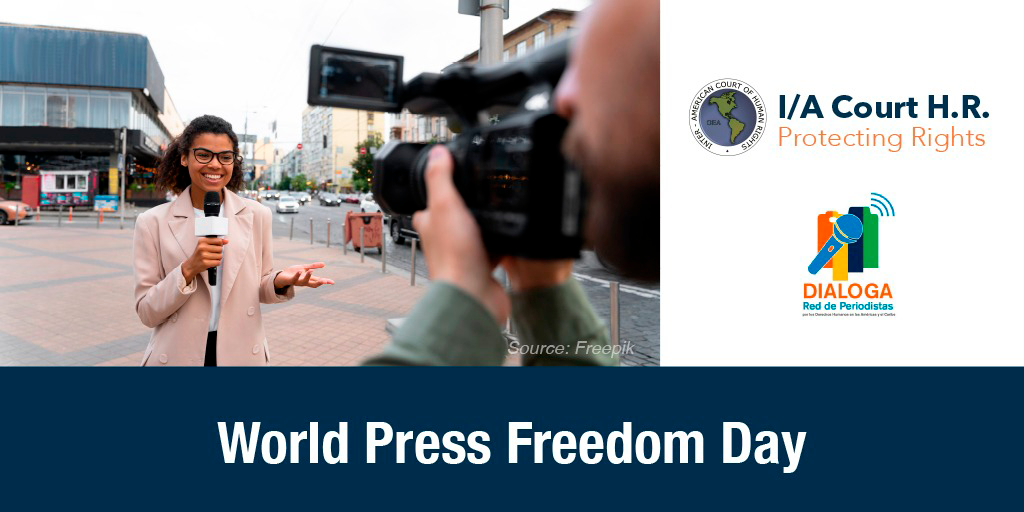
San José, Costa Rica, May 3, 2022

As part of the World Press Freedom Day celebrated every year on May 3, the Inter-American Court’s DIALOGUE NETWORK (RED DIALOGA) of Human Rights Journalists in Latin America and the Caribbean celebrates all journalists on this day.
Recently, the Inter-American Court approved case law with enormous impact on the protection of press freedom in the region, with the Judgments in the Cases of Bedoya Lima et al. v. Colombia, Palacio Urrutia et al. v. Ecuador and the Maya Kaqchikel Indigenous Peoples of Sumpango et al. v. Guatemala, in which it develops standards around the protection of journalists, criminalization of journalists and media diversity.
On this day we recall the activities that the Inter-American Court has been carrying out to disseminate its case law and the dialogue it is building with journalists. The Court, with the support of UNESCO, is currently developing the fourth edition of the Diploma in Human Rights for Journalists. As a result, national meetings are being held with Associations of Journalists in each country to build bridges of dialogue between the Inter-American Court and media professionals.
Additionally, an Investigative Journalism Scholarship Program has been developed in which three journalist scholarship holders have participated, learning about the work of the Inter-American Court more in depth and producing reports on the impact of the Court's case law on the key issues on the continent.
The Inter-American Court’s DIALOGUE NETWORK is a space created for interchange between professional journalists and the Inter-American System, generating areas of exchange, training and communication on the protection of human rights in Latin America and the Caribbean.
On this World Press Freedom Day, we remember the words of the President of the Inter-American Court, Judge Ricardo C. Pérez Manrique, “our policy is one of openness and dialogue and this is reflected in the use of social networks and an ambitious and innovative digital social communication strategy as one of our priorities for the purpose of reaching all parts of our continent. We will also train journalists, including community media, in the Court's case law,” said President Pérez.
We invite you to visit the Dialogue Network Blog for human rights journalists where you will find information and journalistic content from fellow communication professionals.
Coordinating Team
Dialogue Network
(46 restantes)